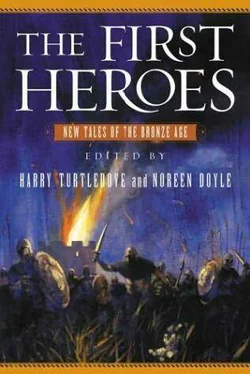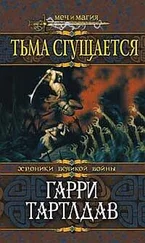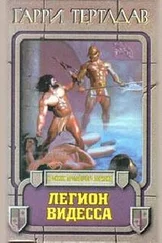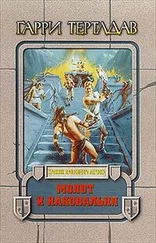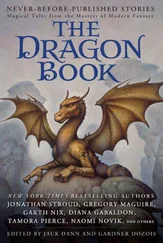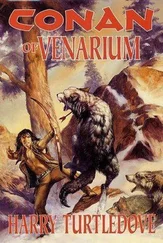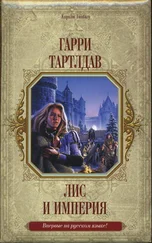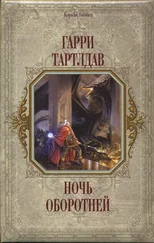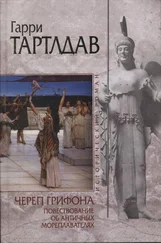Гарри Тертлдав - The First Heroes
Здесь есть возможность читать онлайн «Гарри Тертлдав - The First Heroes» весь текст электронной книги совершенно бесплатно (целиком полную версию без сокращений). В некоторых случаях можно слушать аудио, скачать через торрент в формате fb2 и присутствует краткое содержание. Жанр: Фантастика и фэнтези, на английском языке. Описание произведения, (предисловие) а так же отзывы посетителей доступны на портале библиотеки ЛибКат.
- Название:The First Heroes
- Автор:
- Жанр:
- Год:неизвестен
- ISBN:нет данных
- Рейтинг книги:3 / 5. Голосов: 1
-
Избранное:Добавить в избранное
- Отзывы:
-
Ваша оценка:
- 60
- 1
- 2
- 3
- 4
- 5
The First Heroes: краткое содержание, описание и аннотация
Предлагаем к чтению аннотацию, описание, краткое содержание или предисловие (зависит от того, что написал сам автор книги «The First Heroes»). Если вы не нашли необходимую информацию о книге — напишите в комментариях, мы постараемся отыскать её.
The First Heroes — читать онлайн бесплатно полную книгу (весь текст) целиком
Ниже представлен текст книги, разбитый по страницам. Система сохранения места последней прочитанной страницы, позволяет с удобством читать онлайн бесплатно книгу «The First Heroes», без необходимости каждый раз заново искать на чём Вы остановились. Поставьте закладку, и сможете в любой момент перейти на страницу, на которой закончили чтение.
Интервал:
Закладка:
"The month and the days passed, and the pale streak remained in the sky, growing brighter, until one night it was enormous, brighter than the moon, and then the pygmy said to me, 'My god has arrived! Now I will go home.'
"And he jumpe d. The pygmy from beyond Yam jumped out of his skin. I saw his ha, or something very like his ha, fly so very, very high! For two days I stood there watching him, neither sitting nor eating. He landed upon the great, bright streak with such force that some of it broke away and fell beyond the western horizon. He rode it like a boat, this god of his, back to the Horizon-Dwellers.
"The earth tossed dust upon its head in bereavement. To this day, to this very day, the gods and the earth mourn the loss of my pygmy. And so do I. In the fullness of my power I learned the lesson that the god taught.
"Power is sacrifice. To gain power one must give it away in due proportion. To gain the utmost power one must be denied that most desired thing. I loved the pygmy more than I loved my own everlastingness. And in my longing for him, from the heat of the unquenchable fire within my heart, my power will last forever. And in your longing, Ankhtifi, so will yours."
And since those days the river has lain quietly in its bed, listless and bereaved. Sandbars do not submerge, but loll like hippopotami in the water. Soon one will be able to walk from east to west and back again with a dry kilt, and after that, with dry sandals. Boats sail carefully, with a pilot ever at the bow taking soundings with his pole. Ankhtifi has been a pilot for Hefat. He once thought he had found the deepest channel. Today, dying of wounds from old campaigns and of privation, he doubts.
"Ankhtifi the Brave, the hero without peer," Idy says when Ankhtifi's story has come to the deep droughts and the years of failing crops and starvation, when it is with barley in their arms and not bows that the troops of Nekhen and Edfu meet the troops of Koptos and Thebes. Inglorious, ignominious years. Suffering years. Years of languish and lack.
Through this Idy has remained as certain as ever. And so have the men, everyone of the Districts of Edfu and Nekhen, even as their children grow sickly and their pregnant wives die and their arms grow weak.
How certain are they of Ankhtifi's authority? Could there not be some doubt?
He points to written words and reads them aloud: "As for any overlord who shall be overlord in Hefat and who commits a bad deed or an evil act against this, my tomb, Hemen will refuse his sacrifices on his festival-day, Hemen will not accept any of his offerings, and his heir will not inherit from him."
He turns this finger upon the workmen, upon his son. "Do you doubt this?"
The men are dumbstruck. It is their own handiwork the god has so guarded, and if they have not thought of this before they think of this now, and tremble.
"Would any of you do such a thing ever, in a span of a million of years?"
Idy blinks. He steps away and stands apart from the others. Will he speak? Ankhtifi wonders. Idy will, he must speak out while the people are silent, on the day of fear. He must not be afraid. He must doubt. He will be the next to see the falcon and receive the King's boon. He must see what Ankhtifi has come to see, to know what Ankhtifi has come to know.
Idy replies.
"No, my lord, my father. For you are the hero who has no equal. No one like you has existed before nor will he exist ever after. You have accomplished more than your forefathers, and coming generations will never be able to equal you, not for a million years."
Ankhtifi leans on his staff, bowing his head to the truth of it. By covenant it has been so written, upon the walls and upon the columns of this tomb, and thus it is so in the world. The men whisper that he is listening to the god; Ankhtifi the Brave would never otherwise bow his head.
But, now gesturing toward the doorway with his staff, he says, "Look, the sun has set while we have stood here talking. The light dims over the hills in the west, and it is time to eat, soon time to sleep. Go home. I would be alone in my house of eternity."
They leave, without question, even the spearmen who would sooner see their sons die and lie unburied than allow any harm to Ankhtifi. Idy looks back before he has passed over the threshold, which Sasobek sweeps clean of wind-borne dust, but he does not linger. They know that Ankhtifi speaks with the god. They love Ankhtifi. They fear him. Neither they nor their children, born and to be born, will ever do anything against him, disobey, violate. Ankhtifi the Brave is alone. The falcon has not yet returned this evening for the two khenmet-loaves and the foreleg. The King, still wakeful, paces the Residence, perhaps, or receives tribute from men of far-off lands. He yet counts the oil jars in the great storehouses of Neni-Nesut, makes love to a queen he does not love so much as his pygmy.
Whatsoever else he does, the King does not raise the river, and never will.
Ankhtifi raises his hands toward the ceiling, as if he might reach out through its stones to heaven. He raps the ceiling with his staff. "All I asked from you was this one thing, O King! O lord! O god! Do not deny me what I most desire." His staff clatters to the floor. He clutches at his own image on the pillar and presses his cheek upon it. "I do not want your authority. What has it given me? Might my own tears raise the river? Must I myself lay new mud upon the fields?"
Ankhtifi's fingers trace the hieroglyphic script upon the pillar. He is He-Who-Shall-Live, the brave, the hero, whose equal cannot exist. These are the King's own words, uttered with the King's own authority. These are the god's own boon.
Into the shadows he whispers, "What you have given to me, O lord, I now give to you in kind."
He turns from the pillar. It is cool, and he presses the carved signs into his back. They scratch his skin as he squats.
His bowels move. He is an old man. He is dying.
It is dark and soft like Nile mud. It reeks.
And, leaning heavily on his staff, his back bent, with the two khenmet-loaves and the foreleg of a calf burdening his arms, Ankhtifi walks toward the west, home to share one last meal with Idy.
The emergence of a writing system dramatically alters the record of human activity. Not only does it preserve more detail, such as names and activities that might otherwise leave no trace in the archaeological record, but those details are skewed to the interests of those for whom the accounts are kept. This has meant that, unlike the prehistoric period when men and women equally laid their traces (although archaeologists have not always paid them equal attention), historical records are overwhelmingly biased toward the activities of men. Literary glimpses of Bronze-Age women are usually veiled by the male point of view, whether of their contemporaries or of much later authors. One such author was the Roman poet Vergil, whose epic Aeneid (composed for none other than Augustus Caesar) follows the Trojan hero Aeneas to the shores of Italy. There he wins the daughter of the Latian king and ultimately founds the Roman people. Katharine Kerr and Debra Doyle lift the veil to take another look at the story of fair Lawinia, daughter of Latinus, heir to Latium.
The God Voice
Katherine Derr & Debra Doyle
In her hands and knees the old woman scrubs the wood floor of the shrine. She dips her wad of linen rags into the leather bucket of water, then scours each plank in turn. Her back aches, her calloused knees burn with pain, but if she omitted this daily ritual, her dreams would torment her with work left undone. Sunlight streams in through the western window and falls across her back, the touch of the god Dian, easing her pain.
"I'm gray and wrinkled and twisted in the bone," Watis says aloud, "but you love me still."
Читать дальшеИнтервал:
Закладка:
Похожие книги на «The First Heroes»
Представляем Вашему вниманию похожие книги на «The First Heroes» списком для выбора. Мы отобрали схожую по названию и смыслу литературу в надежде предоставить читателям больше вариантов отыскать новые, интересные, ещё непрочитанные произведения.
Обсуждение, отзывы о книге «The First Heroes» и просто собственные мнения читателей. Оставьте ваши комментарии, напишите, что Вы думаете о произведении, его смысле или главных героях. Укажите что конкретно понравилось, а что нет, и почему Вы так считаете.
